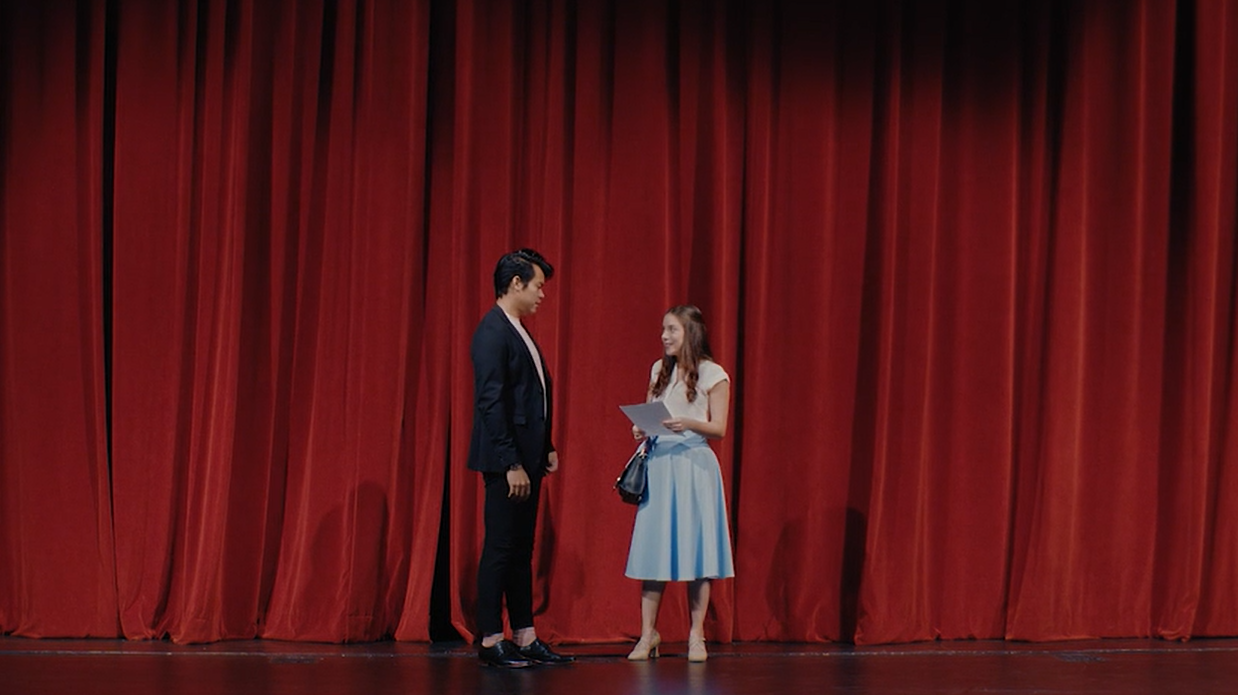San Junipero: Queer Heaven on Earth
Battles will come and go and queer people do die for their identity and fights for rights, but that doesn’t mean the gays don’t deserve their happy endings in stories.
Incluvie Foundation Gala - Learn More
Asking “what went wrong?” is something we often do, more often than most of us would be comfortable admitting. But maybe we wouldn’t be so uncomfortable looking through the bank of memories that hold the answer if we could do it through dance. And that’s precisely what Debbie and Gene do in Mirrorball. The film starts with Debbie moving out and her asking Gene a version of that question which haunts all of us. And then we’re taken on a journey through their romantic relationship from their first meeting to their last argument, through a musical journey. The music itself ranges from rock to orchestral and soft pop as well, each genre chosen to convey the particular mood at the moment on screen. And after that rollercoaster, we’re guided to a bittersweet farewell that reeks of a lingering longing, beautifully rounded out by the metaphor of a mirrorball breaking.
The production is stunning. The set design, the use of lighting, the wardrobes of the characters, and the choreography of the dances, all have a romantic charm about them. The musical sequence opens on a stage with the two characters standing at a distance, one of them distributing flyers, and the other picking up one that flew away. The next scene has a bright red curtain on the stage and Gene shows up for an audition, only to be kept waiting forever. Just when he’s decided to leave, Debbie walks in through the red curtain and then we dive into the tale of romance: their first date, their first kiss, their wedding, etc. We are taken through milestones of their story but edited so well, that you won’t necessarily realize the obvious pauses to change set design and wardrobe. Both the characters are impeccably dressed all the time, and the shiny look of the proceedings on stage, along with the mirrorball lighting up the most significant moments, strengthen the emotional core of the film.

The chemistry of the two actors, Grace Martini as Debbie and Nate Promkul as Gene, is definitely an important aspect of why the film succeeds. They seem to flit naturally between episodes of their life as a couple, buoyed by one’s love for the other. Their romance is just as passionate as the filmmaking and it’s a pleasure to watch them dance together and tell a story. And of course, there are brownie points for diversity. The male lead is ethnically Asian, and some of you might even remember him from American Idol. He may not be singing here, but his dancing is a treat to the eye. Melanie Johnston’s choreography will have you hooked, and wishing they danced a little more. Especially the scene where they’re at the party (to find out why, you’ll have to watch it).
There’s a particular scene towards the end of the film which shows the couple arguing through their shadows. Up until now, a soaring dance scene and the general idea of a failed romance shown through a musical, had me comparing Mirrorball to Damien Chazelle’s Academy Award-winning La La Land, but that scene seems to confirm this is a tribute. The two-room design with a wall in between looks just like the scene in which Emma Stone’s character from La La Land had emerged from her audition and hugged Ryan Gosling’s character. If I’m being honest, I’d initially been skeptical of Mirrorball’s worth as its own creative work, but the similarities insinuate inspiration rather than plagiarism.
I loved the metaphor of their relationship which is the mirrorball itself. Talk about an appropriate title! Song and dance on a stage are naturally often accompanied by lighting with a mirrorball and the insinuation that their relationship had just been song and dance and ended the moment gravity of real life made itself felt, is a beautifully poetic take. So, yes, Mirrorball is full of passion and love for the medium of cinema. It uses a wide range of cinematic tools at its disposal, for such a short run time, and is indeed a fitting love letter to La La Land.

Related lists created by the same author
Battles will come and go and queer people do die for their identity and fights for rights, but that doesn’t mean the gays don’t deserve their happy endings in stories.
Related diversity category
Growing up is a challenge for everyone.